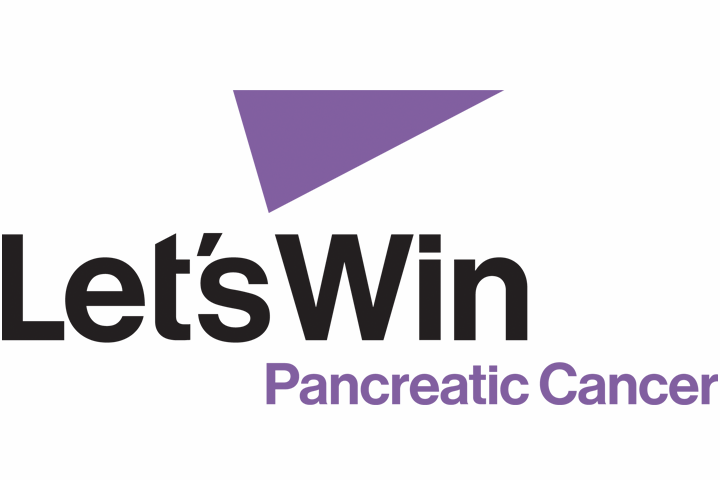ASCO GI Symposium Features a Broad Range of Pancreatic Cancer Research

There is good news for those with gastrointestinal cancers.
The 2024 ASCO Gastrointestinal Cancers Symposium, held from January 18 to 20 in San Francisco, California, once again highlighted the remarkable progress being made in the diagnosis and treatment of the complex array of malignancies of the gastrointestinal (GI) tract. The theme of this year’s Symposium was “Taking Personalized Care to the Next Level.”
The schedule still followed its traditional format, addressing a different specialty each day, such as colon, liver, or pancreatic cancers. However, this year there were also three new sessions, called “Intersections,” designed to address topics with wide appeal. These special sessions included “The Emerging Role of Artificial Intelligence [AI] and Machine Learning in Clinical Care,” “Treatment of Oligometastatic Disease,” (oligometastatic cancer describes an intermediate stage of cancer between localized and widely spread disease) and “The Art and Science of Clinical Trial Design.”
Some of the GI cancers highlighted at the meeting are unfortunately becoming more prevalent among younger individuals, including pancreatic cancer, which is becoming more common in younger women. Researchers don’t know why, but they suspect that increases in obesity and shifts in the racial/ethnic demographics within the U.S. may be in play. That alone further emphasizes the continued need for a broad range of investigations in order to keep the momentum in making both earlier-stage and metastatic pancreatic cancer treatments more effective.
Pancreatic cancer was indeed well-represented by researchers from all corners of the globe. Abstracts, posters, and presentations focused on a broad range of subjects, including combination chemotherapies and other treatments, immunotherapies, the promise of KRAS inhibitors, health disparities, and other vital research.
All this research is clearly paying off. On January 17th, it was announced that the five-year survival rate for pancreatic cancer has increased to 13 percent, up for the third year in a row. It was only 10 years ago the five-year survival rate was 6 percent. The increase in survival rates is mostly driven by patients diagnosed with localized disease and improved management of patients diagnosed in earlier stages, according to advocacy group Pancreatic Cancer Action Network (PanCAN).
As always, Let’s Win will cover much of this newest research in the upcoming months. In the interim, here is a small sampling of pancreatic cancer research presented at this year’s symposium.
The EXTEND Phase II Trial Releases Results
Researchers presented results for “Addition of metastasis-directed therapy to standard-of-care systemic therapy for oligometastatic pancreatic ductal adenocarcinoma (EXTEND): Results of a multicenter, randomized phase II trial.” They found that among patients with oligometastatic pancreatic cancer, the combination of metastasis-directed therapy (MDT) plus systemic therapy was associated with improved progression-free survival compared with systemic therapy alone. Further exploration in phase III trials is warranted, as is investigation into the potential therapeutic implications of systemic immune activation associated with metastatic-directed therapy.
Exploring the Relationship Between Race and CA 19-9 Nonproduction
The researchers wanted to determine if disproportionate rates of CA 19-9 nonproduction underlie racial differences in neoadjuvant chemotherapy response in patients with localized pancreatic cancer. They also explored differences in somatic mutations between CA 19-9 producers and non-producers. The researchers found that Black patients were more likely to be non-producers of CA 19-9. The non-producers in this study also had significantly worse rates of major pathological response following neoadjuvant treatment. Moreover, CA 19-9 nonproduction was associated with higher rates of certain alterations, noting a potential biologic basis for racial differences in chemotherapy response.
Pancreatic Cancer and Diabetes: The Effects of Race and Genes
Pancreatic cancer and diabetes have been shown to be connected, but the genetic associations between the two have not been well characterized. The goal of this study was to identify racial and genomic patterns that relate the timing of diabetes onset with a pancreatic cancer diagnosis. The investigators found that in a cohort of pancreatic cancer patients at a single center, Black individuals were more likely to have diabetes diagnosed closer to pancreatic cancer diagnosis (rather than earlier), compared with other races. No remarkable genomic association was found. They believe this highlights that a diagnosis of diabetes may be related to inequities in healthcare, as opposed to true genomic differences, and needs to be explored in larger datasets.
Germline Testing in Early-Onset Pancreatic Cancer
Early-onset pancreatic cancers (EOPC) are those cancers diagnosed at 60 years of age or younger. The diagnosis is associated with significant mortality rates. About five to 10 percent of average-onset pancreatic cancers have an underlying germline etiology. Currently, National Comprehensive Cancer Network (NCCN) and ASCO guidelines recommend germline testing in all patients with pancreatic cancer. However, there is limited data regarding to what extent patients with EOPC pursue recommended germline testing. Researchers found that in their cohort of EOPC patients at a large community multisite cancer center, 16 percent of patients had germline pathological variants, higher than reported in older patients with pancreatic cancer. Only 20 percent of patients with pathological variants reported first- or second-degree family members with cancer. The researchers say this highlights the importance of recommending germline testing independent of family history even among EOPC cohorts. Further investigation to clarify reasons for refusal of germline testing in EOPC should be evaluated.
A Neoadjuvant Role for SBRT
According to the researchers, radiation may have a role in management of patients with surgically removable pancreatic cancer. But the role of what is called regional nodal irradiation (RNI) is not well-defined despite the high frequency of small nodes of disease that have spread from the main tumor. The goal of this phase I trial was to evaluate the safety and feasibility of giving stereotactic body radiation therapy (SBRT) to primary tumors and regional nodes, combined with capecitabine, as a neoadjuvant approach for patients with resectable pancreatic cancer. The researchers found that neoadjuvant chemoradiation with SBRT and capecitabine to primary disease and regional nodes is feasible and provided a promising signal of durable local control, despite high rates of pathological nodal involvement. The investigators suggest continued studies with larger patient cohorts.
Characterization of the Cachexia Pathway in Pancreatic Ductal Adenocarcinoma
According to the investigators, this study is the largest molecular and clinical characterization of the myostatin/activin cachexia pathway in pancreatic cancer. (Myostatin signaling is one of the fundamental signaling transduction pathways in skeletal muscle.) Their data shows that increased activation of the myostatin/activin pathway is associated with immune mediators, lipid metabolism, and inflammatory gene activation. Activators and repressors are significant predictors of survival in pancreatic cancer. This research may lead to possible novel therapeutic targets.
Developing Treatments for KRAS Mutations
AMPLIFY-7P is an open-label phase I and randomized phase II study evaluating amphiphile immunotherapyELI-002 7P in patients with KRAS-mutated pancreatic adenocarcinoma following standard-of-care chemotherapy and surgery. We will be covering the AMPLIFY trial in greater detail in coming weeks.






